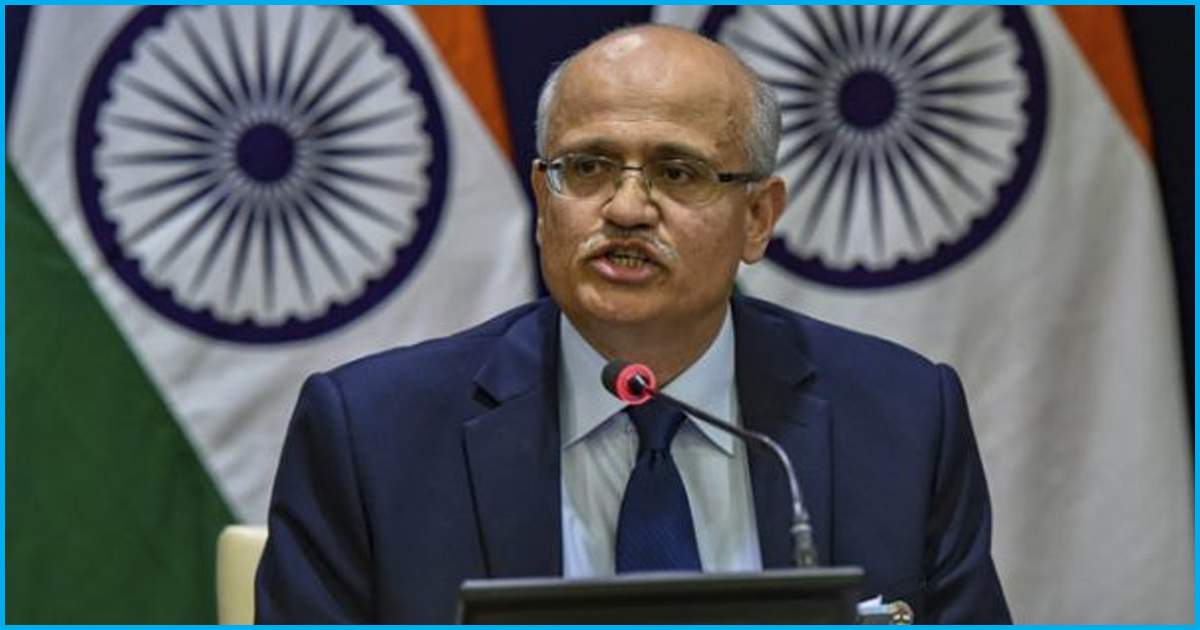
What Foreign Secretary Vijay Gokhale Meant By India's "Non-Military Preemptive Action"
27 Feb 2019 1:10 PM GMT
In the early hours of February 26, Indian fighter jets have struck at terrorist targets in Pakistan, destroying a Jaish-e-Mohammed terror camp. According to the Foreign Secretary Vijay Keshav Gokhale, India struck the biggest Jaish-e-Mohammed camp in Balakot.
He further added that a very large number of JeM terrorists, trainers, senior commander and groups of Jihadis were eliminated. The Indian Air Force (IAF) used 12 Mirage 2000 jets to drop 1,000 kg of bombs on the terror camps and launch pads across the Line of Control in Balakot, Khyber Pakhtunkhwa, at 3.30 am reported India Today.
What did Vijay Gokhale say?
At a press briefing on the very same day at 11:30 am, Foreign Secretary Vijay Gokhale read out the official statement of the MEA, in which he said, “The government of India is firmly and resolutely committed to taking all necessary measures to fight the menace of terrorism. Hence this non-military preemptive action was specifically targeted at the JeM camp. The selection of the target was also conditioned by our desire to avoid civilian casualties. The facility is located in the thick forest on a hilltop far away from any civilian presence.”
This carefully worded statement perhaps justifies India’s stance and action of carrying out an airstrike with aligns with international laws which are notorious for being vague and ambiguous. However, many even raised questions as to how the Indian Army’s actions can be deemed to be non-military.
While international law is many times vague and open to interpretation, Article 2(4) of the Charter of the United Nations says, “All Members shall refrain in their international relations from the threat or use of force against the territorial integrity or political independence of any state, or in any other manner inconsistent with the Purposes of the United Nations,” and in such a scenario, any attack on foreign territory without its consent will be a violation of this clause. However, the UN recognises the need for a country to protect itself and Article 51 states that other provisions in the Charter cannot “impair the inherent right of individual or collective self-defence if an armed attack occurs against a Member of the United Nations.”
What is the doctrine of pre-emptive self-defence?
India took the diplomatic pressure off of itself by presenting a crisp argument which stated that India had received credible intelligence that the Jaish members were planning terror attacks in various parts of the country. With this India wanted to make clear of the fact that the move of violating the Line Of Control was just aimed at eliminating the terror outfits. Hence, to justify its airstrikes, India relied on the doctrine of preemptive self-defence. The Caroline Affair in 1837 has been used to establish the principle of “anticipatory self-defence” or a preemptive strike as has been seen in the case of India. The doctrine states that a nation can act in self-defence even before an armed attack takes place against them. While the doctrine as such is not recognized by the UN Charter under Article 51, practices over the years have helped the doctrine to find a place in the common international law and have been regarded by researchers and scholars as well.
The “non-military” part refers to the fact that the Indian air force did not hit any military base with its strike as hitting a military base would tantamount to an act of war. With this, the foreign secretary has made major efforts to be as precise as possible about India’s intentions as it sought to convey the fact that India’s intentions were not aggressive.
Also Read: MEA Confirms IAF Pilot Missing In Action, Ascertaining Facts On Pakistan’s Claims Of Pilots’ Capture
 All section
All section













